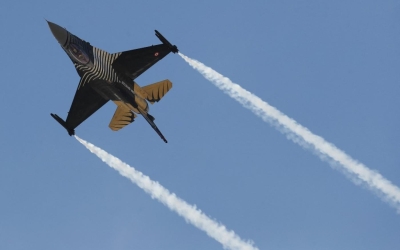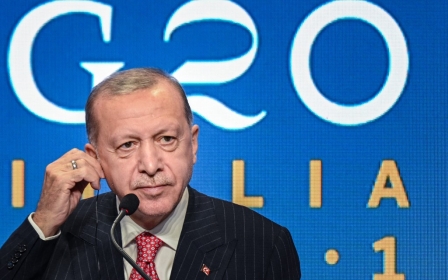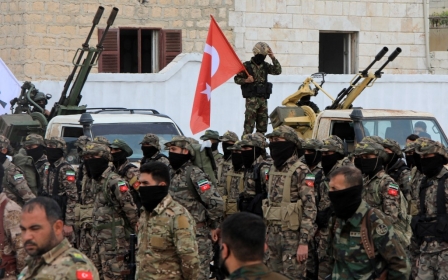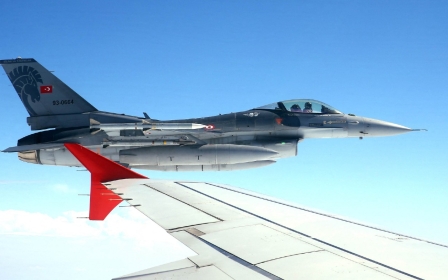Biden will do 'his best' for Turkish F-16 sale, says Erdogan
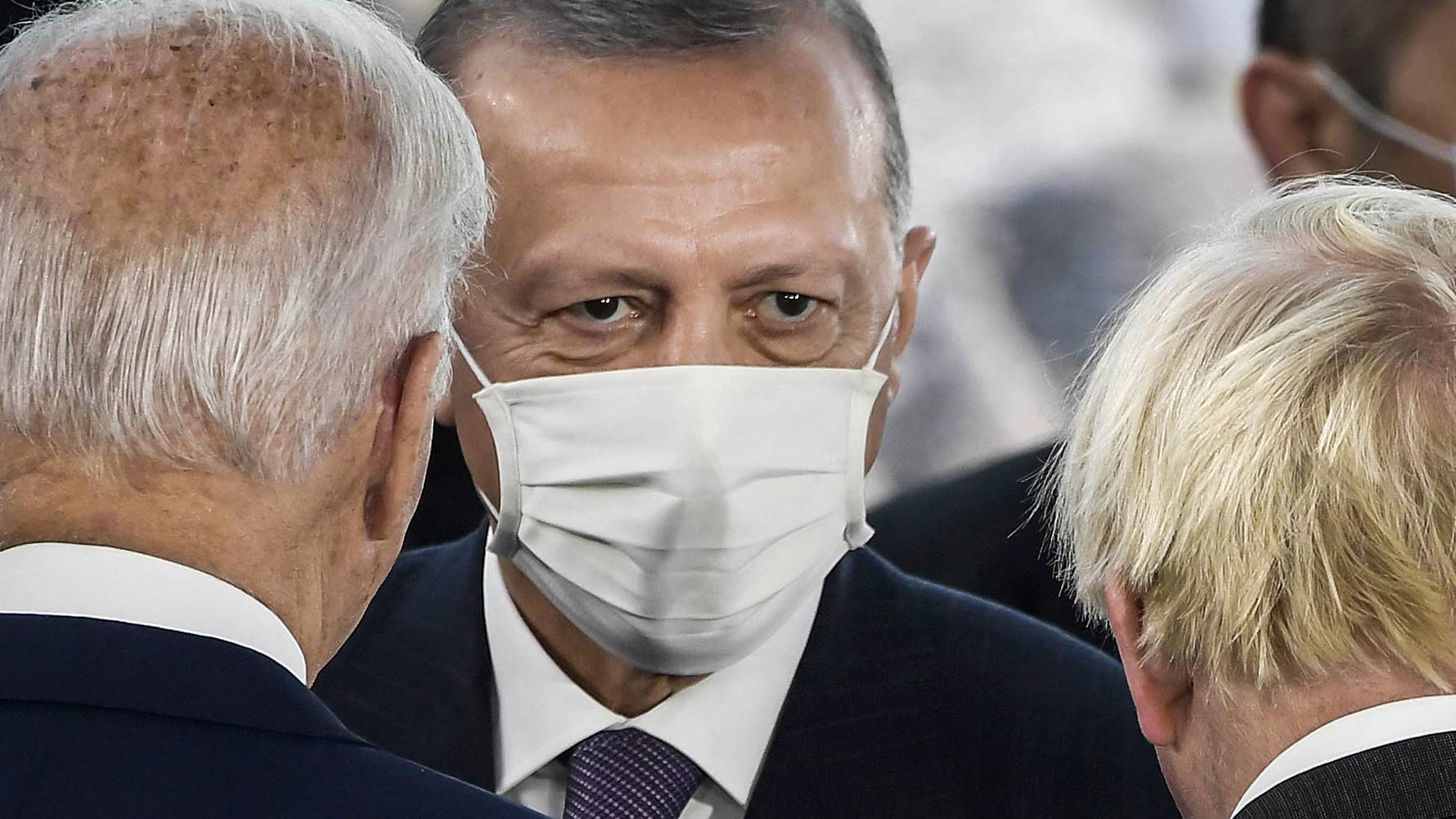
Turkey's president said on Monday that US President Joe Biden promised to do "his best" to ensure Ankara's request to purchase American F-16 fighter jets went through, but noted there's only a "fifty-fifty" chance that the US Congress and Senate would approve it.
US lawmakers have opposed the sale of F-16 fighter jets on the grounds that Turkey purchased Russian missile defence systems.
Speaking on his return from the Group of 20 nations summit in Rome on Sunday, President Recep Tayyip Erdogan told journalists that his meeting with Biden was held "in a very positive atmosphere" despite the two Nato allies having had a testy relationship over the past several years.
Turkey wants to recover a $1.4bn payment that it made before it was expelled from the F-35 fighter jet programme, and Erdogan has previously said the US proposed selling F-16s to make up for it.
New MEE newsletter: Jerusalem Dispatch
Sign up to get the latest insights and analysis on Israel-Palestine, alongside Turkey Unpacked and other MEE newsletters
"We have a payment of $1.4 billion. On this issue, we negotiated the procurement of F-16s. I have not seen any negative attitude from (Biden) in this regard," Erdogan said, according to the Associated Press.
"The situation is fifty-fifty, but I will do my best," Erdogan quoted Biden as saying.
Turkey had ordered more than 100 F-35s from the US, but was kicked out of the programme in 2019 after Ankara acquired Russian S-400 missile defence systems. Its defence industry was subsequently sanctioned by Washington in December 2020.
The US argues that the Russian missiles pose a threat to the F-35 plane and strongly objects to their use within the Nato alliance, while Ankara denies they pose any security threat, insisting that they would be used independently and not integrated into the alliance's systems.
In September, Turkey sent the US a letter of request to purchase 40 F-16s and 80 modernisation kits.
Two sources previously told MEE that the US government had encouraged Turkey to purchase a fleet of new Lockheed Martin-made Viper class F-16 fighter jets and modernisation kits for its existing warplanes.
Still, the request may face an uphill battle on Capitol Hill, as Congress has the authority to block such an arms sale with a resolution of disapproval. Last month, a group of lawmakers sent a letter to Secretary of State Antony Blinken expressing opposition to the Turkish request.
Allies in Nato
Erdogan said the two leaders also discussed economic and trade cooperation, and where they could work together in Afghanistan, Syria, Libya and the Eastern Mediterranean, where tensions between Nato allies Greece and Turkey have been ratcheting up over competing energy claims.
Turkey and the United States also strongly differ over the role of Syrian Kurdish fighters who are a key Washington ally in the battle against the Islamic State (IS) group.
Ankara regards the fighters as "terrorists" affiliated with the Kurdistan Workers' Party (PKK), which has been designated a "terror" group by Ankara as well as the US.
Turkey has called on Washington to halt its support to the Syrian Kurdish fighters.
"If we are allies in Nato, our partners in Nato should not attempt such a thing," Erdogan said. Turkey and Russia are currently negotiating a Turkish military operation in Syria's border town of Kobane to clear the area of Syrian Kurdish YPG units.
Erdogan was expected to fly out to Glasgow to lead the Turkish delegation at the COP26 climate summit on Monday and Tuesday.
However, two people told MEE that the organisers put restrictions on the size of the Turkish delegation as well as motorised vehicles that could be used by the Turkish officials during the conference, which raised security concerns.
The Turkish leader ultimately cancelled his appearance at the summit over the issue regarding the security protocol.
Middle East Eye delivers independent and unrivalled coverage and analysis of the Middle East, North Africa and beyond. To learn more about republishing this content and the associated fees, please fill out this form. More about MEE can be found here.


